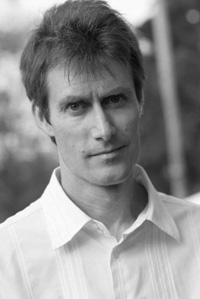Greg Laughlin, a professor of astronomy and astrophysics at UC Santa Cruz, will take the audience on a guided tour of the bizarre menagerie of planets that have been discovered outside our solar system, in a free public lecture on Wednesday, November 17, at 7 p.m. Laughlin's talk, "The Search for Other Earths," will take place at the Rio Theatre, 1205 Soquel Avenue, in Santa Cruz.
According to Laughlin, astronomers are opening a new chapter in human history in which we will know, for the first time, whether Earth-like planets exist around other stars. His lecture will include a discussion of the work that he and his UCSC colleagues are doing to push the envelope in locating potentially habitable planets orbiting the Sun's nearest stellar neighbors. He will describe the role of advanced instruments in this search, from the new Automated Planet Finder Telescope at Lick Observatory to NASA's Kepler space telescope.
Laughlin is a leader in the field of extrasolar planet detection. His Systemic blog provides regular commentary on the latest developments in the field. Laughlin is also an expert on the long-term fate of the Earth, the solar system, our galaxy, and the universe. He is coauthor of a well-received popular book, The Five Ages of the Universe: Inside the Physics of Eternity.
Laughlin's research projects include hydrodynamical and atmospheric modeling, studies of orbital dynamics and evolution, and observational searches for planets using Doppler radial velocity and photometric transit techniques. He earned a B.S. in physics from the University of Illinois and M.S. and Ph.D. degrees in astronomy from UCSC. Before joining the UCSC faculty in 2001, he was a space scientist at NASA Ames Research Center.
Laughlin's talk is part of the Halliday Lecture Series presented by the UCSC Department of Astronomy and Astrophysics and the UC Observatories/Lick Observatory. The Halliday Lectures were created and are supported by generous gifts from donors to UCSC astronomy to promote public awareness and appreciation of astronomy. For more information about this lecture, call (831) 459-2844.



